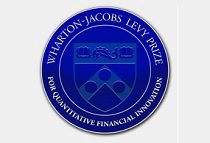 [feather_share]
[feather_share]
Philadelphia, PA—The Wharton School of the University of Pennsylvania is pleased to announce that Nobel Laureate Harry Markowitz is the inaugural recipient of the Wharton-Jacobs Levy Prize for Quantitative Financial Innovation. The award will be presented to Markowitz at the Forum on Quantitative Finance hosted by the School’s Jacobs Levy Equity Management Center for Quantitative Financial Research on October 23, 2013 in New York City.
The Wharton-Jacobs Levy Prize will be awarded biennially to an individual or individuals who have exhibited excellence in quantitative research and have contributed to a particular innovation in the field of finance. The Prize recipient is selected by a committee of esteemed academics and practitioners. This year’s committee consisted of Committee Chair Bruce Jacobs (Principal and Co-Founder, Jacobs Levy Equity Management); Douglas Breeden (William W. Priest, Jr. Professor of Finance and former Dean of Duke University’s Fuqua School of Business); Richard Ennis (Founder, Ennis, Knupp & Associates); Mark Kritzman (Founding Partner and CEO, Windham Capital Management); and Andrew Lo (Charles E. and Susan T. Harris Professor and Director of the Laboratory for Financial Engineering, MIT Sloan School of Management).
Markowitz, Adjunct Professor of Finance, Rady School of Management, University of California, San Diego, is being recognized for his groundbreaking innovations in individual retirement planning, including his article, “Individual Versus Institutional Investing,” published in Financial Services Review (1991). In that article, Markowitz proposed a “Game of Life” computer simulation, which considers individuals’ retirement plans and goals in light of their health, housing, work histories, educational prospects, skill sets, social security, insurance, etc., in addition to their investment goals, opportunities, and decisions. The concepts underlying the Game of Life, which Markowitz has described as “an ideal, a North Star towards which we would direct our model-building,” have since been embraced by the retirement advisory industry.
Markowitz’s contributions to the fields of economics and finance have been immense. He pioneered portfolio theory, developed the simulation programming language SIMSCRIPT, and advanced important work with sparse matrix techniques. In 1989, Markowitz received the John von Neumann Theory Prize from the Institute for Operations Research and Management Sciences for his work in portfolio theory, sparse matrix techniques, and SIMSCRIPT. In 1990, he shared the Sveriges Riksbank Prize in Economic Sciences in Memory of Alfred Nobel for his work in portfolio theory.
Wharton School Dean Thomas S. Robertson said, “We are pleased to recognize the contributions that Harry Markowitz has made to the field of quantitative finance. In particular, his insights and dedication have served to advance knowledge in the investment industry, an important driver of economies around the world.”
Markowitz will receive an $80,000 award at the Center’s first Forum on Quantitative Finance. The Forum is designed to engage leaders in industry and academia for a day of presentations focused on quantitative financial research and its practical applications within the business world, with an emphasis on advancing innovation.
“We are pleased to be able to award the Wharton-Jacobs Levy Prize for Quantitative Financial Innovation to such an influential individual as Harry Markowitz,” said Donald B. Keim, Director of the Jacobs Levy Center and the John B. Neff Professor of Finance at Wharton. “As the Jacobs Levy Center expands its outreach within the quantitative finance industry and academic communities, it is wonderful to be able to acknowledge individuals who have made significant contributions.”
About the Jacobs Levy Center
The Jacobs Levy Equity Management Center for Quantitative Financial Research, endowed with a $10 million gift from Bruce Jacobs and Kenneth Levy, Principals and Co-Founders, Jacobs Levy Equity Management, is dedicated to the advancement of quantitative finance through the creation and dissemination of innovative knowledge. The Jacobs Levy Center aims to enhance the understanding of financial markets through the study and promotion of quantitative techniques and methods as applied to such fields as the analysis of domestic and international stocks and bonds, the management of investment portfolios, and corporate finance.
About the Wharton-Jacobs Levy Prize
The Wharton-Jacobs Levy Prize for Quantitative Financial Innovation, endowed with a $2 million gift from Bruce Jacobs and Kenneth Levy, Principals and Co-Founders, Jacobs Levy Equity Management, will be awarded biennially to an individual or individuals who have exhibited excellence in quantitative research that has contributed to a particular innovation in the practice of finance. The Wharton-Jacobs Levy Prize encourages research that has practical applications. The Prize recipient(s) is selected by a committee of esteemed academics and practitioners.
About the Wharton School
Founded in 1881 as the first collegiate business school, the Wharton School of the University of Pennsylvania is recognized globally for intellectual leadership and ongoing innovation across every major discipline of business education. With a broad global community and one of the most published business school faculties, Wharton creates ongoing economic and social value around the world. The School has 5,000 undergraduate, MBA, executive MBA, and doctoral students; more than 9,000 participants in executive education programs annually; and a powerful alumni network of more than 92,000 graduates.



